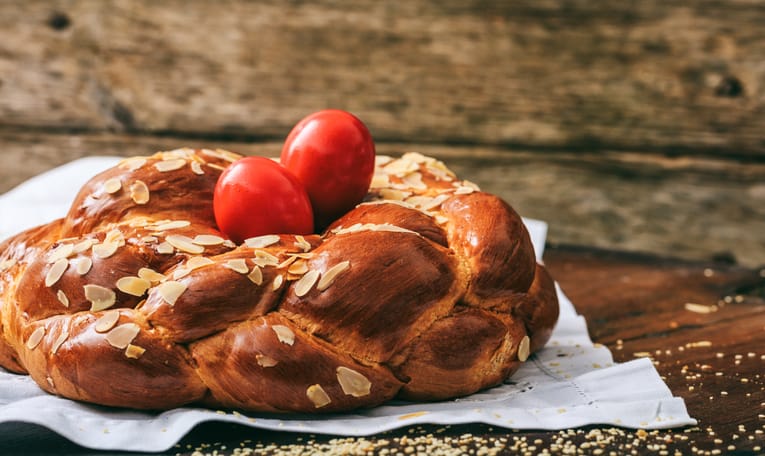If you don’t use olive oil, are you really Greek? Olive oil is the one thing that makes Greek food what it is. Ιt’s also a major componant of the healthy Mediterranean diet, which also includes ingredients like grain, wheat, beans and vegetables. Olive oil, which has been called “liquid gold” for a very long time, is more than just an important ingredient in cooking. It’s also a sign of Greek heritage, custom, and way of life. You can find a big tin of newly pressed olive oil on the kitchen counter of almost every Greek home. It’s there so you can drizzle it over warm bread or mix it into a salad. But what’s so great about Greek olive oil? I’m glad you asked! Let’s talk about its history, health benefits, and how important it is in Greek cooking.
The History of Greek Olive Oil
Amazingly, Greece has been making olive oil for 4,000 years! It has been used since the time of the Minoans, which is around 3100 BC. The ancient Greeks thought that Athena, the goddess of wisdom, gave them the olive tree as a gift. The olive tree is the most cultivated tree in the world and lives thousands of years. The oldest olive tree in Europe is located near Heraklion in Crete and is 3000 years old. Olive oil has never been just food, though. It was medicine, a beauty elixir, and even used to anoint athletes before competitions. And still today, this deep-rooted tradition continues, with small family farms carefully caring for trees that have stood for centuries.
How Greek Olive Oil Is Made
The journey of Greek olive oil starts in the sun-drenched groves that cover the whole country. From November to January is harvest time. It’s a time for farmers to work hard and have fun, picking the olives by hand, and getting together with family and friends. The best Greek olive oils are cold-pressed soon after they are picked so the fresh, grassy smell and rich taste stay the same year after year.
Extra virgin olive oil (EVOO) is the absolute gold standard in Greece. It comes from the first press of the olives, without any heat or chemicals, resulting in a pure, robust taste. Greek EVOO is known for its low acidity and high antioxidant content and is considered some of the finest in the world.
Different Types of Greek Olive Oil
You might be surprised to hear that not all olive oils are the same. Greece is now the third country in oil exports worldwide behind Spain and Italy, but on taste and quality, Greece is number one! This is due to the perfect weather conditions of sun and humidity, along with the highest quality criteria for the production of extra virgin oil. Greece has a variety of olives, each with their own distinct flavours:
Koroneiki (Peloponnese, Crete, and Zakynthos) – This small but strong olive produces a robust, peppery oil packed with vitamins. It’s perfect for drizzling over veggies or dipping fresh bread.
Kalamata (Peloponnese) – Known for its mild and fruity flavor, Kalamata olive oil is often used in marinades and salad dressings, adding a smooth and slightly sweet touch.
Manaki (Peloponnese and Central Greece) – This variety creates a smooth, buttery oil that pairs beautifully with seafood and roasted vegetables.
Tsounati (Crete) – With a rich, nutty flavor and a slightly sweet aftertaste, this well-balanced oil is ideal for fresh greens, grilled meats, and traditional Cretan dishes.
Valanolia (Lesbos) – Delicate and slightly floral, with a mild bitterness and a hint of almond, this oil is great for drizzling over fresh cheeses, light salads, or seafood.
Throumpa (all over Greece, especially in Thassos, Crete, and Evia) – This variety produces a deep, robust oil with earthy and slightly smoky notes, making it perfect for slow-cooked dishes, roasted meats, and hearty stews.
Many Greek olive oils carry Protected Designation of Origin (PDO) labels. This ensures authenticity and regional character so you know you’re getting the real deal. If you ever visit a Greek farmers’ market, ask the sellers about their olive oil. You can be sure they’ll proudly tell you the story behind each bottle.
What Greek Cooking is All About
Greek food just wouldn’t taste the same without olive oil. Many dishes are built on it, and it brings out the best in fresh vegetables and makes them taste better. These are some of our favourites:
Horiatiki, or Greek salad: Don’t forget to drizzle a lot of EVOO over the feta, olives, ripe tomatoes, and cucumbers.
Moussaka: The roasted aubergine, spicy meat, and creamy béchamel in moussaka are all given more depth by the olive oil.
Tzatziki: A little olive oil makes this yoghurt-based dip smooth and creamy.
Ladera means “based on olive oil,” and these classic vegetable dishes, like fasolakia (braised green beans) and gemista (stuffed tomatoes and peppers), are cooked slowly in a lot of olive oil.
Even Greek sweets, like Baklava and Koulourakia, taste better with a little olive oil added to them.
Why Greek Olive Oil is So Good for You
People who eat a Mediterranean diet that is high in olive oil are said to live longer and be healthier generally. This makes Greek olive oil one of the healthiest oils you can eat. It is full of strong antioxidants and monounsaturated fats that are good for your heart. Some of its most important effects are:
- Good for your heart: lowers bad cholesterol and lowers your risk of getting heart disease.
- Anti-inflammatory properties: Polyphenols are found in large amounts and fight inflammation.
- Better brain function: May help lower the chance of Alzheimer’s and other brain diseases.
- Helps digestion: It supports gut health and makes digestion better.
- Helps skin look healthy: Olive oil naturally heals skin and hair because it is high in vitamin E.
Olive Oil as a Symbol of Greek Hospitality
In Greece, food is about more than just eating. It’s about sharing, connecting, and celebrating life. From a seaside taverna to a family gathering, olive oil is always on the table, waiting to be enjoyed with warm bread and good company. If you ever find yourself in a Greek village, don’t be surprised if someone gifts you a bottle of their homemade olive oil. This is the ultimate gesture of hospitality!
Experience Greek Olive Oil for Yourself
Greek olive oil is so much more than just an ingredient. It’s a reflection of history, culture, and quality. Whether you’re enjoying a simple village salad or a slow-cooked stew, olive oil is what brings Greek food to life. If you haven’t already, you need to explore the world of authentic Greek cuisine and olive oil. Look out for small producers who focus on quality and tradition, and once you taste real Greek EVOO, you’ll never go back!
Even better, come on one of our food tours and learn about Greek culture while your taste buds are being wowed! We’d love to show you in person.
Further Reading
How the Greek Cuisine has Evolved Since the Ancient Greeks
The Health Benefits of Olive Oil
5 Studies on the Mediterranean Diet—Does it Work?
Honey: The Sweet Taste of Greece




